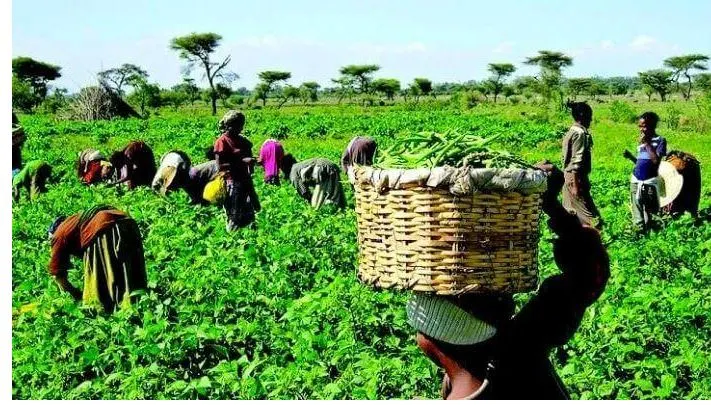Ebonyi Emerges as Nigeria’s Agricultural Hotspot in First Census in 31 Years
In a landmark revelation, the National Bureau of Statistics (NBS) has identified Ebonyi State as the leading hub of agricultural activities in Nigeria. This information comes from the recently published National Agricultural Sample Census (NASC) Report 2022, marking the first agricultural census conducted in the country in 31 years.
Key Findings from the NASC Report:
- Ebonyi’s Agricultural Dominance:
- Ebonyi State has the highest concentration of agricultural households, with a staggering 99.5 percent of them engaged in crop cultivation.
- This is a significant contrast to Lagos, where only 48 percent of households are involved in crop production.
- Crop and Livestock Production:
- Nationwide, 91 percent of agricultural households are involved in crop production, with Benue State leading in groundnut cultivation at 81 percent.
- The report highlights that 35 percent of agricultural households exclusively practice crop cultivation, while 48 percent are involved in raising different types of livestock.
- Jigawa State has the highest percentage of households engaged in livestock production at 84.2 percent, followed by Bauchi at 79.7 percent.
- Poultry and Fisheries:
- In terms of poultry farming, Benue tops the list with 65.2 percent of agricultural households involved, closely followed by Ebonyi at 63.3 percent.
- Overall, 42.5 percent of agricultural households raise poultry, predominantly chickens, while five percent engage in fisheries.
- Popular Crops:
- The most commonly cultivated crops across Nigeria are maize, guinea corn, and rice.
- The primary root and tuber crops are cassava, yam, and cocoyam.
- Beans and cowpeas are the main leguminous and vegetable crops, cultivated by 46 percent of crop-producing households.
Challenges in Agricultural Regions:
- Despite the agricultural potential, regions like Benue, known as Nigeria’s food basket, face significant challenges. Increasing attacks and security issues have worsened the plight of farmers, threatening food production.
- An SBM Intelligence report from April 2024 indicated over 690 deaths and 130 casualties in Benue over a span of thirteen months, highlighting the severe impact of violence on agricultural activities.
Government’s Response and Future Plans:
- Abubakar Kyari, the Minister of Agriculture and Food Security, praised the NASC report as a crucial development for Nigeria’s agricultural sector. He emphasized that the data provided would aid in informed policy decisions and strategic planning.
- The census is expected to play a pivotal role in addressing the agricultural challenges and enhancing food security in the country.
Significance of the NASC Report:
- This census, being the first since 1993, is a critical tool for understanding and improving Nigeria’s agricultural landscape. The insights gained will help policymakers and stakeholders address gaps and leverage opportunities for sustainable agricultural development.
Ebonyi’s emergence as a leading agricultural state underscores the importance of regional agricultural strengths and the need for targeted support to enhance productivity and food security in Nigeria. The NASC report provides a comprehensive overview that can shape the future of agriculture in the nation.
Share News with us via WhatsApp:08163658925 or Email: naijaeyes1@gmail.com
Join Our Social Media Channels:
WhatsApp: NaijaEyes
Facebook: NaijaEyes
Twitter: NaijaEyes
Instagram: NaijaEyes
TikTok: NaijaEyes





